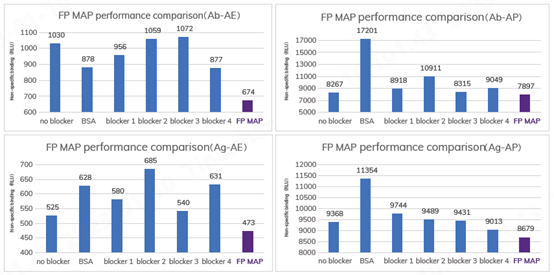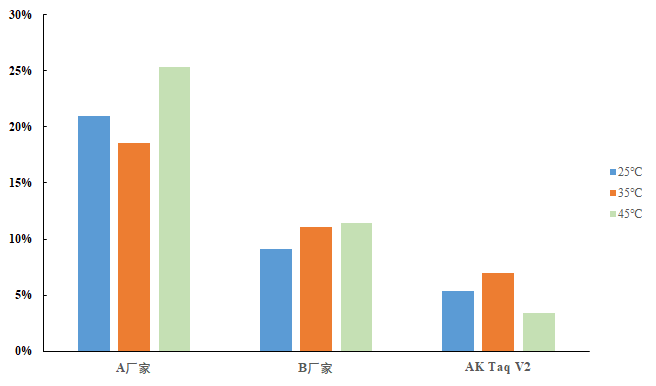Products
AK Taq DNA Polymerase V2 is a genetically engineered variant of Taq DNA Polymerase with enhanced binding ability to DNA substrates through amino acid mutation, and is more resistant to interference from impurities. It has the ability to amplify strands that conventional wild-type Taq cannot. Moreover, it retains the 5‘→3’ exonuclease activity of Taq polymerase, making it suitable for probe-based fluorescence quantitative PCR detection. The modification by dual Taq monoclonal antibodies enhances the inhibiting effects on the various active sites and improves the specificity. Prior to heating, the binding of the Taq monoclonal antibody at the anti Tag 5‘-3’ DNA polymerase active site to the Taq polymerase inhibits the polymerase activity and prevents nonspecific amplification at lower temperatures caused by non-specific annealing of primers or primer-dimer formation. The monoclonal antibody at Anti-Taq 5‘-3’ exonuclease active site binding to the Taq polymerase reduces exonuclease activity and prevents the degradation of primers and probes, which ensures the long-term stability of pre-mix products. When amplification reactions are heated to 95°C for two and half minutes, polymerase activity is restored due to the denaturation of the Anti-Taq monoclonal antibodies, yielding active polymerase that can be used directly under standard PCR reaction conditions.
In combination with optimized buffer, PCR proceeds rapidly and effectively with superior sensitivity, specificity, and product yield.
In addition, the product exhibits decreased inhibition when in the presence of blood, soil, plant material, sputum, and other common PCR inhibitors and can be used for rapid PCR amplification protocols.
Composition

Superior specificity and sensitivity
Resistance to various inhibitors
Enhanced polymerization capabilities, suitable for fast PCR

High efficiency: Even with a low total enzyme activity of 0.15U/reaction and a short extension time of 5 seconds, AK Taq DNA Polymerase V2 still demonstrates amplification of target strands.

Enhanced inhibition effects: The product exhibits superior potency in inhibiting 5'-3' exonuclease activity at various temperatures, effectively reducing the degradation of primers and probes.
-
QWhat is the difference between AK Taq DNA Polymerase V2 and AK Taq DNA Polymerase?AAK Taq DNA Polymerase V2 is an upgraded version of AK Taq DNA Polymerase, which is modified by monoclonal antibodies that inhibit the 5'-3' exonuclease activity site, reducing the degradation of primers and probes by Taq enzyme in the whole reaction system.
-
QWhat inhibitors is AK Taq DNA Polymerase resistant to?AAK Taq DNA Polymerase V2 exhibits decreased inhibition when in the presence of blood, soil, plant material, sputum, and other common PCR inhibitors.
1. Kornberg,A. and Baker,T.A. (1992)DNA Replication, 2nd edn.W.H.Freeman, New York, NY.
2. Nakai,H., Beauchamp,B.B., Bernstein,J., Huber,H.E., Tabor,S. andRichardson,C.C. (1988)Formation and Propagation of theBacteriophage T7 Replication Fork. American Society of Microbiology,Washington, DC.
3. Bambara,R.A., Uyemura,D. and Choi,T. (1978) On the processivemechanism of Escherichia coli DNA polymerase I. Quantitative assessment of processivity.J. Biol. Chem.,253, 413±423.
4. Das,S.K. and Fujimura,R.K. (1977) Mechanism of T5-induced DNA polymerase. I. Replication of short primer templates.
J. Biol. Chem.,252,8700±8707.
5. Das,S.K. and Fujimura,R.K. (1977) Mechanism of T5-induced DNA polymerase. II. Characterization of the dead-end complex.J. Biol. Chem.,252, 8708±8712.
Join us for a better future of IVD.
If you have any question or need any support, please fill out the information below.






